detail profile jean daniel
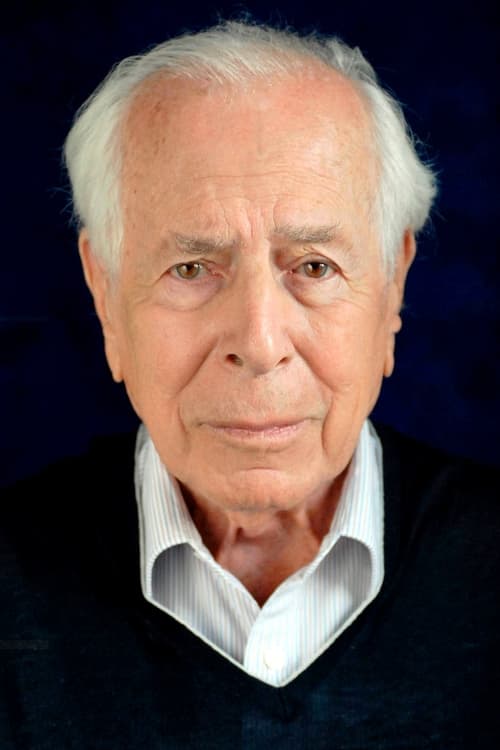
Jean Daniel
Jean Daniel Bensaïd
atau dikenal sebagai
Riwayat Hidup
Jean Daniel Bensaid (21 July 1920 – 19 February 2020) was a French journalist and author.
He was the founder and executive editor of Le Nouvel Observateur weekly now known as L'Obs.
Daniel was born in Blida, Algeria, as the youngest of 11 children.
His father, Jules Bensaid, was a flour miller.
Jean Daniel attended the University of Algiers before the Second World War.
During the war, he was part of a resistance group that aided the liberation of Algiers, and he participated in the Normandy landings as part of the Free French forces led by Philippe Leclerc.
Following the war, Daniel attended Sorbonne University (studying philosophy) and worked for Félix Gouin as a speechwriter.
Daniel was a Jewish humanist in the tradition of the French Left.
He was a colleague and friend of Albert Camus, a fellow pied-noir (French-Algerian).
In La prison juive: Humeurs et méditations d'un témoin (The Jewish Prison), Daniel argued that prosperous, assimilated Jews in the west live in a self-imposed prison made of up of three invisible walls: the idea of the Chosen People, Holocaust remembrance, and support for Israel.
"Having trapped themselves inside these walls.
.
.
," wrote Adam Shatz in describing the book, "they were less able to see themselves clearly, or to appreciate the suffering of others -- particularly the Palestinians living behind the 'separation fence'.
"
Daniel was a member of the Saint-Simon Foundation think-tank.
In 1947 Daniel co-founded the Caliban magazine, which ran until 1951.
Following it closure Daniel became a teacher, until he was hired as a reporter by L'Express in 1956.
Daniel covered the Algerian War for L'Express; he was sympathetic to the independence cause and received death threats from the Organisation armée secrète (OAS).
He was interviewing Fidel Castro in Havana as news came through of the assassination of John F.
Kennedy.
Castro said "es una mala noticia" ("this is bad news"), perceiving that he would be blamed in some quarters for the assassination.
Kennedy had given Daniel a message to pass to Castro, which said that the U.
S.
could respect a "nationalist, even communist" government of Cuba, but could not relate to a country that was "indentured" to the Soviet Union.
He co-founded the French magazine Le Nouvel Observateur in 1964, which had existed since 1950 as L'Observateur politique, économique et littéraire (1950–53), L'Observateur aujourd'hui (1953–54) and France Observateur (1954–64).
The 1964 incarnation of the magazine was when Jean Daniel and Claude Perdriel took over renaming the magazine and starting its best known phase under the name Le Nouvel Observateur as a weekly.
Since then it has been published by Groupe Nouvel Observateur on a weekly basis and has covered political, business and economic news in France and internationally.
On 23 October 2014, the magazine was renamed L'Obs.
Source: Article "Jean Daniel" from Wikipedia in English, licensed under CC-BY-SA 3.
0.
Info Pribadi
Peran Yang Di Mainkan Jean Daniel
 Albert Camus died at 46 years old...
Albert Camus died at 46 years old...The Lives of Albert Camus 2020
Albert Camus died at 46 years old on January 4, 1960, two years after his Nobel Prize in literature. Author of “L'Etranger”, one of the most widely read novels in the world, philosopher of the absurd and of revolt, resistant, journalist, playwright, Albert Camus had an extraordinary destiny. Child of the poor districts of Algiers, tuberculosis patient, orphan of father, son of an illiterate and deaf mother, he tore himself away from his condition thanks to his teacher. French from Algeria, he never ceased to fight for equality with the Arabs and the Kabyle, while fearing the Independence of the FLN. Founded on restored and colorized archives, and first-hand accounts, this documentary attempts to paint the portrait of Camus as he was.
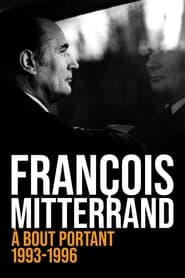 What could be more unsettling than...
What could be more unsettling than...François Mitterrand, à bout portant : 1993-1996 2011
"What could be more unsettling than a man close to death whose profound arrogance drives him relentlessly to hang onto both his power and his writing, to the bitter end?" In the twilight of his second seven-year term, François Mitterrand was alone. Ravaged by illness and abandoned by a large majority of the Socialist Party, who would not forgive him for the disastrous outcome of the March 1993 elections, the Head of State was preparing to tackle a second round of cohabitation with the right wing. However a series of unexpected tragedies and revelations would arise, casting a shadow over the end of his reign…
 On September 5 1960 the trial of about...
On September 5 1960 the trial of about...Manifesto of the 121 2011
On September 5, 1960, the trial of about twenty French activists from the "Jeanson Network" began, supporters in the metropolis of the action of the Algerian FLN independence activists. But after a few days, the situation was reversed and the trial transformed into a political arena, it was the government, the army, their policy, it was the entire Algerian war whose trial began. Accused, witnesses, lawyers, overflowing a stunned court, transformed the courtroom into a tribune of the opposition. The trial coincided with the publication of the "Manifesto of the 121" on the right to insubordination, signed among others by Jean Paul Sartre, Arthur Adamov, Simone de Beauvoir, André Breton, Marguerite Duras, Pierre Boulez, René Dumont, François Chatelet…
 An account of the brief life...
An account of the brief life...Amour de vivre 2010
An account of the brief life of the writer Albert Camus (1913-1960), a Frenchman born in Algeria: his Spanish origin on the isle of Menorca, his childhood in Algiers, his literary career and his constant struggle against the pomposity of French bourgeois intellectuals, his communist commitment, his love for Spain and his opposition to the independence of Algeria, since it would cause the loss of his true home, his definitive estrangement.
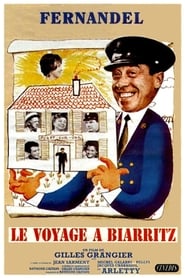 Guillaume Dodut is a stationmaster in...
Guillaume Dodut is a stationmaster in...The Trip to Biarritz 1963
Guillaume Dodut is a stationmaster in rural France at a station where trains no longer stop. His dream has always been to holiday in the famous resort town of Biarritz. Meanwhile, he gets involved in the romantic life of his son who is studying to be an engineer in London.
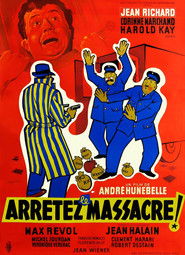 Promoted to wrestling champion by chance...
Promoted to wrestling champion by chance...Stop the Massacre 1959
Promoted to wrestling champion by chance, Tonin, known as le Bourreau de l'Ardèche, moves to Paris. He is quickly snapped up by Monsieur Bob, a self-styled manager who, in reality, hides his dealings under the cover of a nightclub, but who is also Tonin's regimental buddy. So Tonin acts as a front man, while Bob provides him with fake victories. The beautiful Wanda, the gangster's mistress, appeals to Tonin; she's charitable and sets him on the right path. He returns to the Ardèche and marries the daughter of the village mayor, after learning what a dangerous protector Bob is.
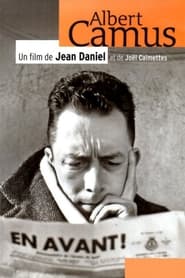
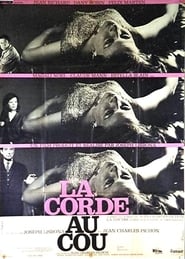 Arthur can no longer stand married...
Arthur can no longer stand married...